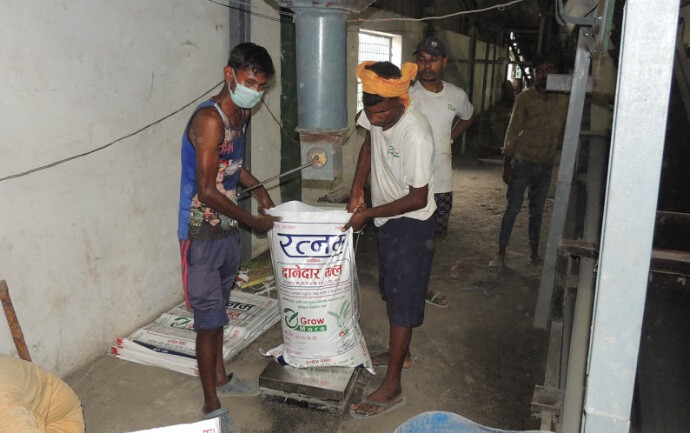
RUPANDEHI, Nepal - A Nepali couple, Siddhartha Agrawal and Poonam Kumari, have addressed a critical need for farmers by opening the country's first granulated organic fertilizer plant in Kothawa, Rupandehi district. The venture, named Grow More Fertiliser and Chemical, was born out of a fertilizer shortage experienced during the COVID-19 pandemic.
Addressing a National Shortage:
Nepal faces a chronic shortage of chemical fertilizers due to various factors, including limited domestic production, reliance on imports, and inefficient distribution systems. This shortage significantly impacts the nation's agricultural sector, which employs 60% of the workforce and contributes 24% to the GDP.
A Sustainable Solution:
Grow More's "Ratnam" granulated organic fertilizer offers a solution. The plant, with a daily production capacity of 200 tonnes, aims to meet the demands of farmers across Lumbini, Gandaki, Bagmati, and Madhesh provinces. The fertilizer is positioned as a cost-effective and superior alternative to traditional chemical fertilizers, boasting a balanced composition of essential nutrients like nitrogen, phosphorus, potassium, and others.
Overcoming Challenges:
The couple faced a year-long process to obtain government permits and another year to test the fertilizer's effectiveness. Despite challenges, they secured production permits from the Lumbini provincial Ministry of Agriculture and Livestock Development.
Positive Impact:
The launch of the plant is a welcome development for farmers. "There is a mix of all materials essential to maintain soil health," said Siddhartha. "We believe using fertilizer helps grow agricultural output." Additionally, the company aims to make the fertilizer readily available by establishing sales depots in over 100 locations across the target provinces.
Looking Forward:
Grow More hopes to capture a significant share of the fertilizer market and gradually replace chemical fertilizers with their organic option. The company's success could not only address Nepal's fertilizer dependence but also promote sustainable agricultural practices. With competitive pricing and increasing demand from local and even Indian farmers, the future looks bright for Grow More and Nepal's agricultural self-sufficiency.
[Copyright (c) Global Economic Times. All Rights Reserved.]






























